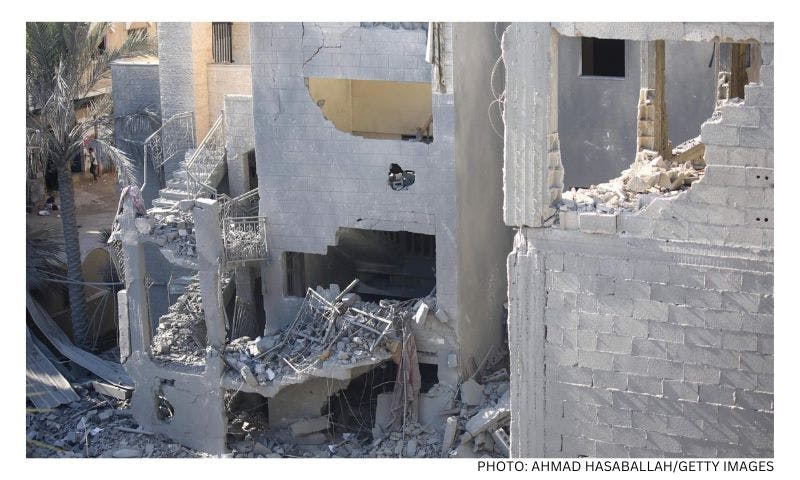Published: 31 December 2015
Last updated: 4 March 2024
William Mark Szekely (z“l) 1954 – 2015
From the eulogy by Rabbi Jeffrey Kamins at William’s funeral on 30.12.15
This week we begin the book of Shemot, the story of the Exodus that is the beginning of our people’s memory, one seared in the cauldron of slavery. That memory of oppression calls us to make a commitment to look after the stranger and the oppressed. William Szekely took this lesson to heart, our core story part of his core story as well. In addition, the name of the book and this week’s Torah portion, “Shemot – these are the names”, makes us conscious that the crown of a good name exceeds them all. William Szekely wears the crown of a good name. He has earned this name through his intellectual and emotional intelligence, his goodness and compassion, love and care, his talent as a musician and as a tireless giver to the community, particularly through his social justice and interfaith activities and leadership.
William was born on May 19, 1954 to refugee parents, Andrew, a survivor from Hungary who met Victoria, a refugee from the Ukraine, through their work together assisting other refugees. They arrived here in 1949, and their singular son, William, was born just down the street from Emanuel Synagogue, where he has had a life-long association, including serving on our Board and as Honorary Secretary. His parents’ experiences, along with the lessons William learned in the Jewish community, inspired his commitment to those generally in need.
Andrew and Victoria divorced when William was five, so he and his younger sister Nathalie grew up in separate homes with their respective mothers. But William’s father instilled in him the importance of family and he was always the present big brother for Nathalie. Especially in her teen years, he was a loving and protective force. William though was more like his mom, who could be emotionally detached, and his step-dad, Josi – it was Josi who introduced to him to music, especially the piano and accordion. The two gave him his calm nature and a love of learning and reading. They showed him the world – Vanuatu, New Caledonia, New Zealand, and later Europe as well. William was indeed a broad, worldly thinker from this time, and also diligent in his work. From his teens, William enjoyed helping them in the business.
After primary school at Randwick Public, William attended Scots College. Scots was not an ideal school for him; he was the non-sporty, heavy-set, nerdy Jew, but what saved him from being bullied was his incredible accordion playing, remembered to this day by so many. The accordion, with its mobility, became his favourite instrument. Typical of William, he would go to tennis camp and enjoy the rainy days when he didn’t play tennis but entertained his friends with his accordion. His passion for music was a core aspect of his personality all his life, playing these last years in a Klezmer Band that performed at Emanuel Synagogue, among other venues.
David Goldman, one of his fellow musicians writes, “ …He would joke that he was forced by his parents to play what was then a particularly daggy instrument, one that, with the salami sandwiches for lunch, would out him as a not 'true blue' Aussie, but a pure as gold Hungarian. …He had an excellent ear for music; he was one of the classic 'hum a few bars and I'll fake it' kind. He was particularly fond of the klezmer and folk repertoire. Nothing was too schmaltzy for him to play with gusto and great spirit. Memorable were the 'duelling accordions' with William and bandleader Eddie Bronson. When William became ill, and lost facility in his left hand, he was still playing one-handed and still managing to enjoy playing with others.”
William was also gifted in languages, becoming fluent in Spanish through his first marriage, to Pituca, and then German in his second marriage, with Gudula; he had mastery as well of Latin and French. William loved learning – archaeology, marine biology, history, and aviation among his passions. He knew a lot about a lot, a champion in games of trivia. He also possessed a great knowledge of Jewish history. William’s Bar Mitzvah at the then Temple Emanuel fell on 10 June 1967, in the midst of the Six Day War, and William donated all his money gifts to Israel, emblematic of his lifelong commitment to our people and our land.
After Scots, William went to an institution more suited to his intellect and personality, Sydney University. After his top results at Scots, William could have done anything he wanted. Just a couple of weeks ago, William and Gudula were at dinner with President Obama’s advisor on climate change. The man turned to William, impressed by his quick and academic mind, and said, “If I weren’t a scientist, I would be a lawyer.” William responded, “If I had not been a lawyer, I would have been a scientist.” However, with his dislike of blood, he chose law over medicine, graduating in 1978. His work suited his intellectual and curious mind; it also allowed him to help others, a perfect fit.
William was a hard worker, volunteering with Abbott Tout in order to prove himself, leading to his employment by them. He was meticulous in his approach and able to keep many cases out of court. He was organised, thorough and knowledgeable – not just in law but all aspects of life. Many of his clients, because of his compassion and care, said he was not just their lawyer, but their social worker as well, looking after their emotional as well as legal needs.
One of his closest friends and colleagues, Norbert Schweizer, wrote: “William was an exceptionally diligent and compassionate as well as competent lawyer in his specialist field of industrial relations and employment law. He was also probably one of the most voluble advocates, at least when it came to the written word, that I have ever encountered. I always knew that if he was on the other side of a matter and sent me a letter, or if I had asked him for advice (which he willingly and unstintingly gave), there would be oodles to read. His comments were always stimulating and considered and, more often than not, he was correct. It is largely due to William’s efforts that the German Referendar program (an internship program for German law students) is so extensive and effective in Sydney. Many judges have had Referendare working with them over the last dozen or so years.”
After about five years at Abbott Tout, William worked at a series of partnerships doing industrial law cases that took him all around Australia; also land and environment work; and also personal injury matters that saw him active in some very big Navy matters where he acted for clients against the Commonwealth, winning many cases in Federal Court. Thereafter, William established with two colleagues the partnership of Taylor Szekely Kelso. He went into sole private practice around 1993, and continued to work in industrial law and write articles on his website, the last appearing two days before he died.
While establishing himself as the consummate lawyer, William also began his family life. Pilar Perez, from Zaragoza, Spain, had met William at the Hakoah Club when she was only 16 and he was beginning uni; four years later they moved in together and married in 1983. Alexander was born in 1986 and Bianca in 1988.
Alexander and Bianca remember that their father was always a font of knowledge for them. Their dad pushed them to grow and to know more, especially in academic fields of maths, history, languages and literature. He was always pragmatic and grounded, but could also be obstinate and argumentative. Alexander and Bianca often held different interests and perspectives that were difficult for him to relate to; on the other hand, William loved technology, bringing home his computer, a relatively new invention at that time, and this inspired Alexander’s interest and eventual career in IT.
After their parents separated, Alexander and Bianca would see him every other weekend, and William would use this time to explore their creative talents. They would build models together, draw and paint, go to themed parties, and expand their repertoire of music – from Latin, to Klezmer, to Euro Vision. Both have a love of music from him, and fondly recall the time he was engaged with African tribal music, the beat pounding through the house, Alexander and Bianca running through the rooms banging on all kinds of improvised bongos. They always loved the skiing adventures they shared with their dad, and the celebration of Pesach, with all its rituals, from the cooking and the setting of the table, to the recollection of the values inherent in our memories.
When William met Gudula in 1997, he evolved in new directions. During their first conversation, they realised they had a lot of friends in common, and many other connections as well. They bonded beautifully, for both love travelling, laughing together with their similar senses of humour, reading and discussing the paper, and just hanging out together. As much as he loved family though, he maintained his love of the law: driving home past his office after an evening of entertainment in the city, William would comment to Gudula positively, “I’ll be back there tomorrow!”
William was very supportive of Gudula’s work and efforts, helping her write proposals, or her newsletter, or assisting in her branding. He was beloved by her family in Germany, as a brother-in-law and uncle. In turn, she fully supported him in all his endeavours, the two committed to a bigger picture of being and contributing. Together they have developed wonderful friendships and community, throwing parties combining his love of music and her love of drama. Her extroversion brought him out of himself.
William became involved in the Inner West Chavurah as an active and valued member. He added his wisdom to Chavurah film, book and discussion groups as well as bringing his accordion along to simchas. He also contributed significantly to Emanuel Synagogue. This led to his further involvement in the NSW Council of Christian and Jews as well as the NSW Jewish Board of Deputies, where he has recently been involved in our dialogue with the Uniting Church. He did pro bono work for many different Jewish organisations, particularly those connected with Israel for which he always held a passion. William eventually chose interfaith work as his focus, being president of the NSW Council of Christians and Jews for four years, and then Chair of the Australian Council of Christians and Jews for the last three years until his death on Friday afternoon.
Gudula’s warmth, love and openness had a positive impact on William’s ability to be present for Talia. While Talia is a bit of the apple off the tree – from the age of five looking at National Geographic magazines and interested in archaeology, as well as inheriting William’s passion for photography—she also brought out a softer side in William. Her recent trip to Israel as part of the BJE Emet Israel Program brought him immense joy and pride. On her way home from there for today’s funeral, Talia wrote: “My father was a special man. As with most relationships, we had our ups and downs. Being very similar, we often clashed, but more often than not, we had a wonderful connection. Saturdays were our day. Earlier on, we would spend the day taking Samba, our dog, for her wash, and have breakfast at our favourite café. I get my licence in two weeks and the first thing I was going to do was drive him to that pub where we have often gone for a Saturday meal. More recently, we would head off to our favourite local café and discuss the world at large, the universe, politics, science and philosophy. I loved learning from him and hearing his opinions. He was definitely a fountain of knowledge for me, and I don’t know what I’m going to do without him.”
William was diagnosed with cancer at the beginning of 2012, and for nearly four years was in a horrible battle with chemo and surgery, as the oesophageal cancer was supposedly cured, and then, unusually, metastasised in his brain. He coped with the treatment and with the disabilities that it brought on. For William, these were not disabilities but challenges and opportunities. All of us have been amazed at how strong and positive he has been throughout his illness. He never seemed to lose his good humour or his upbeat attitude. Just a couple of weeks ago, he was ecstatic at the great news that he had received from his doctors that he was clear of any tumours. It seemed like a miracle, and if anyone deserved a miracle, William did.
It was such a positive time. He was thrilled for Talia’s Israel experience, and he and Gudula celebrated the news of Bianca’s engagement with David. Then came the good news about his remission, William and Gudula celebrating their wedding anniversary with a feeling like they had won the lottery. They were able to dream and plan for the future. One of Gudula’s nieces and goddaughters is getting married in July, and they would be heading to Germany for that. There was Bianca’s and David’s wedding to imagine. They could explore plans to retire in Kangaroo Valley. The two could breathe again, so happy, peaceful and joyous. Alas, all this has been cut short with William’s sudden heart attack on Friday afternoon, leaving us all, especially his family, in shock and grief.
We pay respect to William Szekely, a man whose story has been so integrated with the story of our people – with his passion for learning, commitment to our heritage, and even more, our values of justice and working for and with others. William was an extraordinarily generous individual; with his time, his wisdom, his humour, and his multifarious interests which were almost Renaissance-like in their breadth, he has indeed earned the crown of a good name. May William’s good name be an inspiration for each of us, his memory a blessing especially for his beloved family.




Comments
No comments on this article yet. Be the first to add your thoughts.